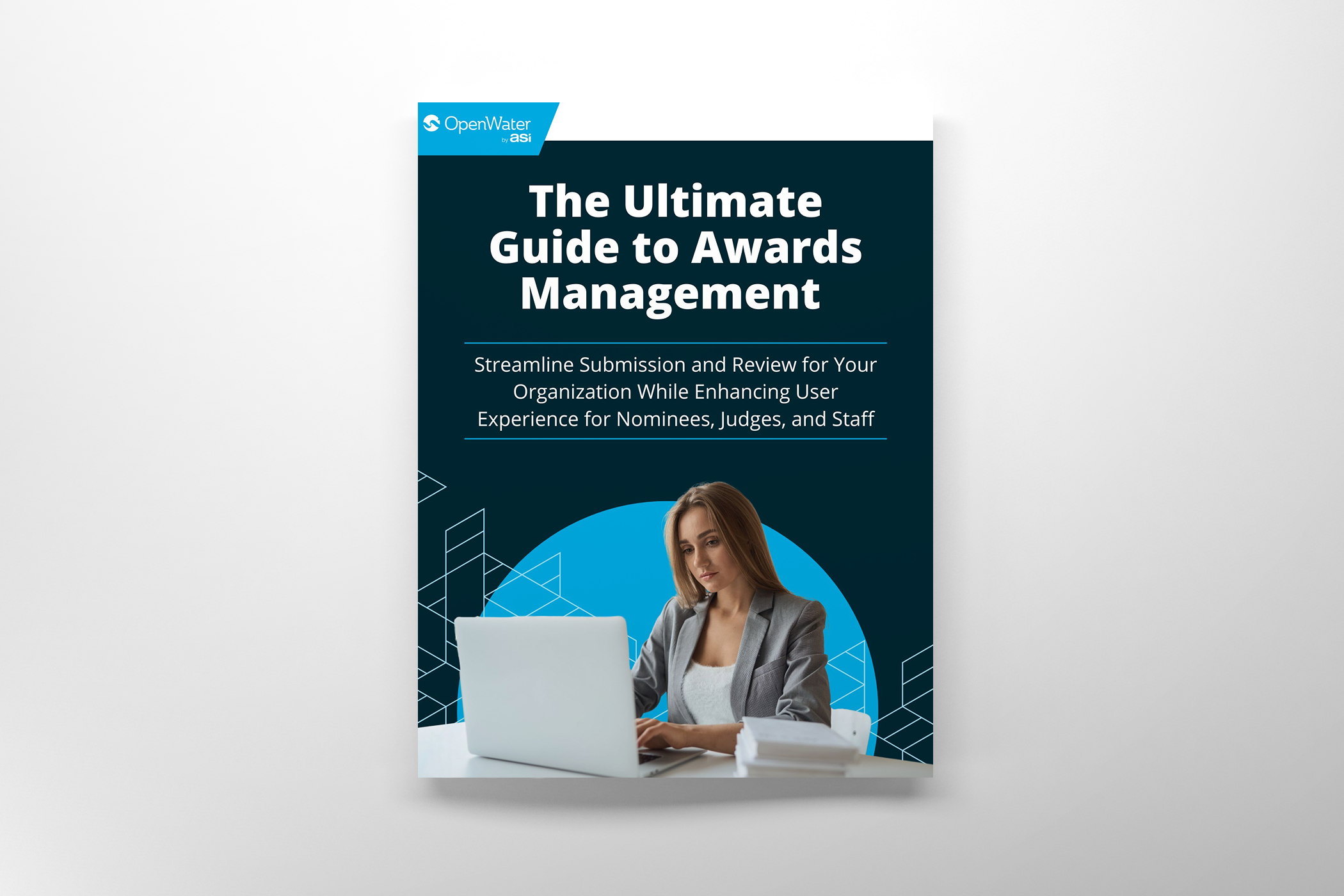
Increase Award Program Submissions & Avoid Common Mistakes
It’s a common situation at associations: on top of all your other responsibilities, you’re also in charge of the awards program. Unless you’ve taken a class in Awards 101, you have to figure out the dos and don’ts of awards management by yourself. But to increase award submissions, you need to understand what usually causes low entries so you can prevent this problem before it even starts.
In this post, we’ll explore how to increase award submissions by avoiding the most common pitfalls in awards program management.
Keep your awards program in front of members year round
If another organization’s awards are more popular than yours, find out why. Talk to members who’ve received awards elsewhere. Perhaps the other awards have more name recognition, are perceived as more prestigious, or better promote winners—tough things to learn, but important to know when developing your awards marketing and communication plan.
Make it easy for industry professionals to understand what each of your awards represents. If awards are named in honor of members who no longer have widespread name recognition, consider rebranding them.
Email marketing campaigns help members learn about your awards and the recognition you give to award recipients. Send regular reminders about submission procedures and deadlines. If members think it’s too late in the game to nominate someone or submit an entry, they won’t bother.
Highlight award recipients throughout the year by featuring their innovative practices and accomplishments in podcast episodes, videos, blog posts, webinars, and conference sessions. Invest in the tools, such as awards management software, and resources required to make a persuasive case for participating in your awards program.
Make a case for participating in your awards program
Industry professionals may not see the value in participating if they only hear about your awards once a year. Change their mind by showing them throughout the year how others have benefitted from winning an award.
An awards plaque has limited exposure in a workplace or home office. How do other people in the industry—the award recipient’s peers, employer, potential employers, and clients—learn about the winner’s achievement?
Develop a plan to provide meaningful online recognition for award winners throughout the year that helps them advance their career or business.
- Give them a digital badge to display on their LinkedIn profile and website.
- Earn more media coverage with press releases that give journalists issues to cover and stories to share.
- Repurpose awards content for webinars, sessions, and articles.
If employers aren’t aware of your awards or aren’t supporting them, you need to enhance the perceived value of your awards to earn more employer respect.
Assess what your awards recognize. Only a small audience might care about awards that focus on associations activities. Instead, consider awards that recognize what someone does for the industry, for example, innovative practices, achievements, and contributions that advance the profession or set an exemplary model for others to emulate.
Look at the number of award recipients overall and per category. If too many applicants receive a prize, you’re diluting the award’s value.
Scan the list of past winners. Do the same people or companies frequently win because not enough of them enter?
Highlight the integrity of your awards program
The perception of fairness affects the number of award entries, and the number of entries affects the perception of fairness—it’s a vicious cycle. If judges have no one else to select but the companies who enter every year, then the same companies dominate the winner’s circle year after year. People assume they’re not likely to get a fair shot since the awards always seem to go to the “in crowd.”
Identify which member segments are missing from award submissions and invite entries from them. If only certain types of members know about the awards, like committee members and other active volunteers, then you won’t reach or attract a more diverse entrant pool.
Regularly assess award categories to ensure they reflect the current market. For example, “30 under 30” programs might be unfair if your profession attracts career changers. However, awards recognizing contributions of early-career members can help you spread the word to an important demographic.
Lack of transparency is a huge obstacle to entries. Be extremely clear on your website about eligibility requirements and the judging process and criteria. Would an “outsider” understand what you’re sharing?
Look at the language and jargon used in eligibility criteria, award and category names and descriptions, and marketing campaigns. Members might be discouraged from applying if they believe the award is not for someone “like them.”
High entry fees present another barrier, especially if your industry is experiencing a challenging economy. Consider using a range of entry fees so smaller organizations aren’t locked out.
Build trust by presenting your awards program as inclusive yet meaningful.
Overcome administrative hurdles in the way of awards program success
Sometimes it becomes all too much. Associations have too many awards programs because too many committees feel the need for their own awards. Then, you end up with too many departments running programs on their own timelines with no standardization or coordination. Members get a serious case of awards fatigue.
But the reverse situation is a major problem too—an association awards program with too many owners, which means no one owns it. No one oversees the coordination of work between departments, and no one takes ownership of the program’s reputation, integrity, and management.
When you have a lack of coordination or a lack of ownership, marketing and communication have an uphill battle. Members, even award winners, are the losers.
- When members don’t receive the answers they need, they give up on the idea of entering.
- When entrants don’t receive feedback, they’re not likely to try again next year.
- When award recipients feel ghosted after the first burst of acclaim, they don’t become advocates for the program.
Clear submission instructions and a FAQ page minimize member cries for help. An online awards management platform frees up staff time so you can focus on promoting participation and highlighting winners.
Minimize the time required to submit an awards entry
A laborious awards entry process is a barrier to participation. Busy professionals don’t have time for complicated or lengthy submission requirements. An online awards platform eliminates the need for participants to print, fill out, and mail entry submissions and supporting documentation.
Make sure the submission period isn’t too short. But if it’s too lengthy, you risk losing interest as the initial announcement buzz dissipates. Avoid submission deadlines during your industry’s major events or busy periods.
Look at your awards program from an industry professional’s perspective. Is the ROI there? Is the time they spend on their entry worth the results? Simplify this equation for them with awards management software that makes the submission process easier and less time-consuming. Find out how the National Electrical Contractors Association increased their award applications by 72% when they implemented OpenWater to streamline their awards submission, promotion, and review process.
